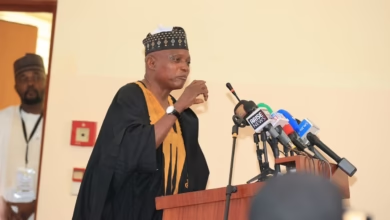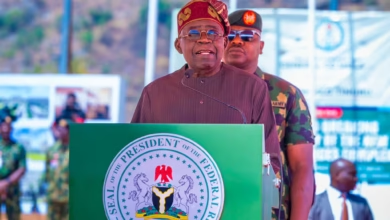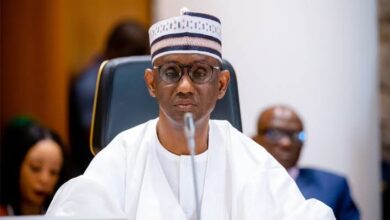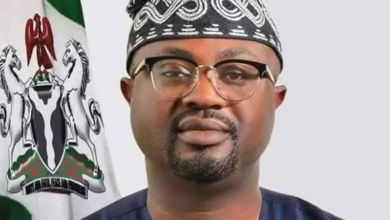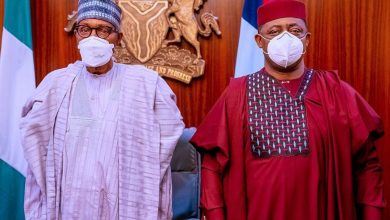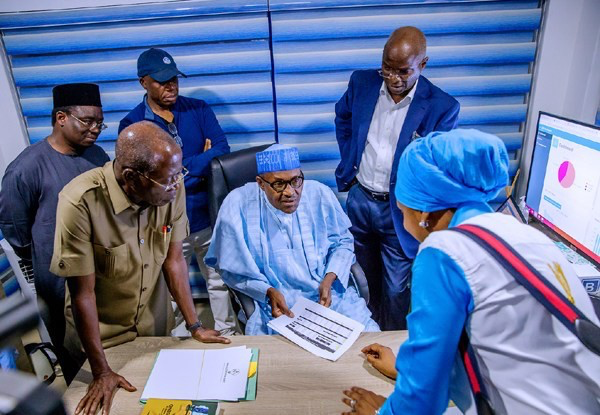
A Review of The book, 49: The Election Planning & Monitoring Story
It is no longer news that Muhammadu Buhari GCFR, President of the Federal Republic of Nigeria won the 2019 Presidential elections, held on 23 February, 2019. What is, however news is how his victory at the polls came about. For the critics of that election, especially those in the opposition Peoples Democratic Party (PDP), the victory of Buhari was as a result of a one-day rigging adventure.
What this group of individuals fail to realise is that the victory came from the work of a broad-based team of individuals with different skill sets carefully selected from diverse professions and groups, and with a clear mandate of delivering Buhari and his running mate, Professor Yemi Osinbajo, at the polls.
The book, 49: The Election Planning & Monitoring Story, a 240 Coffee-Table Book by the Election Planning & Monitoring Directorate of the All Progressives Congress Presidential Campaign Council, produced by Lukman Olanipekun (aka Lukesh) with contribution from other amazing amazing photographers such as Bayo Omoboriowo, Jesse Yakubu, Novo Isioro and edited by Terfa Tilley-Gyado highlights the tough but rewarding 49-Day 2019 campaign run by the Council that culminated in victory for the President at the 2019 Presidential polls.
More importantly, the book offers insights that could help, not only the ruling party in future elections as it hopes to consolidate its winning streak, but also to opposition political parties who are serious about wresting power from the ruling party, as well as the national electoral umpire, the Independent National Electoral Commission (INEC) in its quest to conform to the global standards in election management, as the country transits from money-based campaigns and violent and rigging-prone elections to a more civilized country where campaigns are issues-based and the elections are largely transparent, credible, free and fair.
The book opens with the APC Presidential Campaign Council (PCC), put together by Buhari, the then Presidential candidate in consultation with the ruling party, the All Progressive Congress (APC), and other critical stakeholder groups across the country, sub-divided into various directorates to oversee specific aspects of the electioneering processes, and charged with just one goal — to ensure Buhari’s successful outing at the polls.
It further, notes that nothing was left to chance in the work of this team. Even the inauguration ceremony of the team was well timed. The composition of this team was not done until the tensions that arose from the primary elections of the party have been successfully managed. This was to allow for better cohesion in the party, which would be necessary if the party was to emerge victorious in the elections.
Buhari even noted this in his speech at the inauguration ceremony of this team, which was also published in the book, when he said, “having waited for all the dust raised in the nomination exercise, and the carefully worked out reconciliation processes to ensure some measure of healing, we are better placed to put together an all-inclusive campaign council that will effectively engage the entire voting public throughout the length and breadth of our federation, and deliver a resounding victory for us at the general elections.
A lot of credit goes to the party’s high echelon, notable among them are the Chairman, Comrade Adams Oshiomole, his bold and passionate speech at the INEC’s stakeholder meeting following the postponement on the eve of the initial date of the election. Campaign DG, Rotimi Amaechi, who provided quality leadership for the entire campaign effort. Mallam Nuhu Ribadu who led the field operations and those in contact and mobilisation directorates who traversed the nooks and crannies of the country touching almost every household selling the candidacy of President Buhari to the electorate.
Accolades also go to those in the strategic communications directorate, led by Festus Keyamo SAN, who anchored their communications on the performance of the three-year-plus administration of the incumbent, as directed by Mr President. His exploit going from one media house to the other defending the achievement of Buhari/Osinbajo Administration is worthy of note.
“Our campaign will be anchored on our performance in the last four years. There is no doubt that our party has succeeded in taking Nigeria to a new level of enduring peace, economic growth, political stability, justice and progress,” Buhari charged his team. The team showed the electorate the comparative difference between 2015 and 2019 in the areas of security, economic development and fight against corruption, the three major electoral promises made by Buhari in 2015
One directorate that stood out in the PCC in the area of innovation was the Directorate of Election Planning and Monitoring (DEPM). Reaching over 80 million voters across the country could be daunting, but not to be compared to monitoring and collating results from the 119,973 polling units and 57,023 voting points nationwide in one day. This is where the DEPM showed its prowess for novelty, as could be seen in the book. It built the trust and confidence of the rank and file who formed the crux of its workforce.
The Directorate’s approach to its duties was built on empirical research and verifiable evidence which it brought to bear on its interventions. It was a game-changer and a major boost to the eventual victory that the party recorded in Presidential elections, where Buhari scored a whopping 15,191,847 votes, beating the main opposition, PDP by 3, 928.869 votes.
This type of novelty, reliance on empirical data, is what could have been lacking in INEC that made for the inglorious postponement of the 2019 Presidential elections few hours to the appointed time of take-off. There is no gainsaying that this postponement caused a lot of disillusionment in the electorate that could have marred the success of the elections were it for the vigorous campaign run by the various stakeholders, rebuilding trust in INEC. From INEC explanations of the reasons behind the postponement, it was evident that this show of unpreparedness was as a result of the under-evaluation of its logistics needs which came from the lack of adequate data in its possession.
Another lesson that could be learnt from the work and achievements of the DEPM, as could be deduced from the book is the role of training in achieving success. The major difference between mere population and human resources is training. The book tells us that knowing the task ahead of it, the DEPM recruited and trained over 15,000 frontline party agents across the 36 states and the FCT, and provided training materials to over 550,000 party faithful nationwide.
The training sessions came in handy in tackling the menace of fake news and in managing the logistics of collation and reporting of the electoral outcomes during the Presidential elections. Some of the issues recorded during the elections bordered around training, from inability of the ad hoc staff of INEC to either operate the card readers or deal with the contingent issues like violence, late arrival of electoral materials etc. that came up during the elections.
Still on human resources, the book shows how the DEPM cared for its staff, ad hoc and volunteers alike. It made enough provision for their welfare including feeding, medicals, lounging and remunerations. This is quite unlike the picture we saw where INEC’s ad hoc staff were sleeping on bare floors and in open fields or the videos we saw of INEC’s ad hoc staff protesting non-payment of agreed allowances. If we need to have people put in their best at work, we must properly motivate them with adequate incentives.
The book shows how effective collaboration and coordination amongst different groups could ease the delivery of a particular task. The Directorate of Election Planning and Monitoring, headed by Babatunde Fashola and assisted by Hadiza Bala-Usman, who was also the Director for Contact and Mobilisation fostered partnerships with other directorates and leveraged the under-utilized assets of the party like the national party structure, state party Chairmen, state coordinators, gubernatorial candidates, national assembly candidates and the Director of Organisation, for teamwork and coordinated, coherent campaign strategy.
That INEC could not deliver sensitive electoral materials to desired locations in time during the elections was largely because it failed to optimally utilize the wide range of stakeholders, like the military, that could assist it in getting the electoral materials to desired location in time.
The team, from what the book, 49: The Election Planning and Monitoring Story tells us, set a new record in the utilisation of technology in election planning and monitoring. It established a Situation Room manned by a highly skilled team who optimally utilized the benefits of social media, call centre operations, various apps and online portals for real time reporting and feedback. The National Situation Room collated and managed over 200,000 datasets from polling unit to state level using an exclusive online portal. It made over 81,000 calls from the national situation room to party agents and stakeholders across the 36 states and the FCT.
This is yet another lesson that could be learned from the DEPM. Technology is a great enabler and facilitator of processes. Take the collation of results, for example, the DEPM in the evening of the election, was able to collate 90 percent of data from the polling units and was able to know that its presidential candidate was well ahead of the main opposition candidate, and was on his way to victory. This was more than 48 hours to the time INEC declared the results.
The book on Page 211 says thus: “By the election day, data gathered had already reached 90%, this we leveraged on for result collation at the end of the voting process. Based on 90% availability, we were able to collate election results from the field to inform/assure our principal of the electoral outcome.”
Every election victory comes with lessons to be learnt for future use. The re-election of President Muhammadu Buhari has a lot to offer those who would be managing campaigns in future election. Apart from the aforementioned lessons, the book is heavily pictorial and well- planned out to elevate the experiences of the reader. Overall, the book is a compendium of knowledge that will benefit any candidate or party, aiming at winning elections or for any electoral umpire desirous of efficiently managing elections.
The Project Director, Simi Fajemirokun at the PCC Office (middle) and some Staff and Members of the PCC
Moruff Adenekan is a Strategic PR and Communications Consultant in Nigeria.

